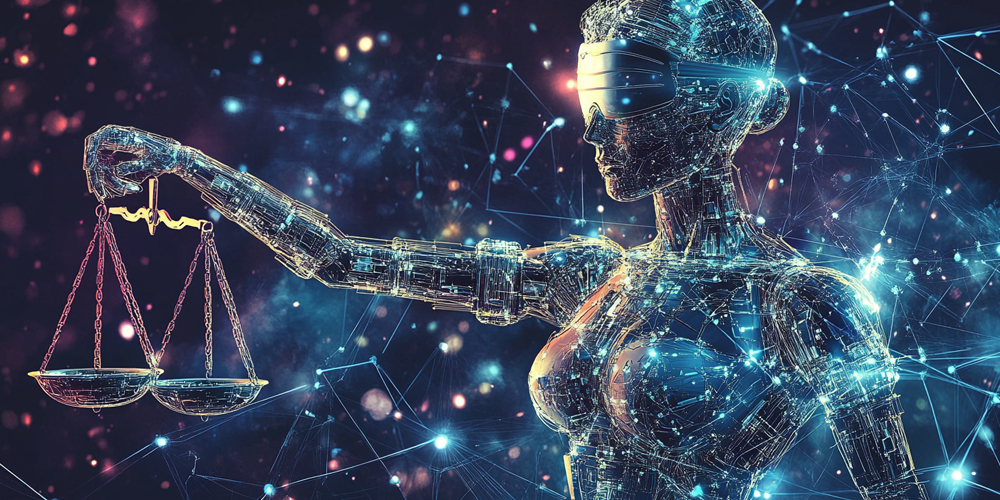As we move into 2024, the landscape of Artificial Intelligence (AI) is rapidly evolving. The integration of AI technologies across various sectors is not just a trend; it is a transformation that is redefining how businesses operate. This article will delve deep into the top AI trends that are set to revolutionize industries this year, exploring their implications, applications, and challenges.
1. The Rise of Generative AI
One of the most significant developments in AI is the rise of generative AI. This technology enables machines to create content, including text, images, music, and even videos. The implications for businesses are profound, as they can leverage generative AI to enhance creativity and streamline processes.
Applications of Generative AI
Companies are adopting generative AI for various applications, such as:
- Marketing: AI can generate personalized content for marketing campaigns, improving engagement and conversion rates.
- Product Design: Businesses can use generative design algorithms to create innovative product prototypes.
- Customer Interactions: AI-driven chatbots can provide personalized customer service, responding to inquiries in real time.
Challenges and Considerations
Despite its benefits, generative AI presents ethical challenges. Issues such as copyright infringement, misinformation, and content authenticity need to be addressed. Organizations must establish guidelines to navigate these challenges responsibly.
2. AI-Powered Automation
AI-powered automation is becoming essential in enhancing operational efficiency. Organizations are increasingly relying on AI to automate routine tasks, freeing employees to focus on more strategic initiatives.

Benefits of Automation
Automation offers numerous benefits:
- Cost Savings: By automating repetitive tasks, companies can significantly reduce labor costs.
- Increased Accuracy: AI minimizes human error in tasks such as data entry and invoicing.
- Enhanced Productivity: Employees can concentrate on high-value work, leading to improved overall productivity.
Future Outlook
As AI technology continues to evolve, automation will become more sophisticated. Companies will invest in tools that integrate seamlessly with their existing workflows, driving efficiency gains across the board.
3. AI in Healthcare
The healthcare sector is undergoing a major transformation thanks to AI technologies. From diagnostics to personalized medicine, AI enhances patient care and operational efficiency.
Diagnostic Tools
AI algorithms are proving invaluable in diagnostic procedures:
- Medical Imaging: AI can analyze medical images to identify conditions such as tumors and fractures with remarkable accuracy.
- Predictive Analytics: By analyzing patient data, AI can help predict potential health issues before they arise, allowing for preventive measures.
Personalized Treatment Plans
AI enables healthcare providers to develop personalized treatment plans:
- Genetic Information: AI analyzes genetic data to recommend tailored therapies, optimizing treatment effectiveness.
- Patient Monitoring: Wearable devices equipped with AI can monitor patient health in real time, providing valuable data for healthcare providers.
4. AI and Big Data Integration
The combination of AI and big data is a powerful trend in 2024. Organizations that can effectively harness the data they collect will gain a significant competitive edge.
Data-Driven Decision Making
AI algorithms sift through massive datasets, identifying patterns and trends that inform business decisions:
- Market Analysis: Companies can analyze customer behavior and preferences to refine their products and services.
- Performance Metrics: Businesses can track performance indicators in real time, adjusting strategies as needed to optimize outcomes.
Real-Time Analytics
AI-powered analytics tools provide real-time insights, enabling companies to respond quickly to market changes:
- Demand Forecasting: By predicting trends, organizations can adjust inventory levels and optimize supply chains.
- Customer Insights: Real-time data helps businesses tailor their offerings to meet customer needs more effectively.
5. Enhanced Customer Experience
Providing an exceptional customer experience is a top priority for businesses in 2024. AI plays a crucial role in achieving this goal through personalized interactions and efficient service delivery.
Chatbots and Virtual Assistants
Many organizations are implementing AI-driven chatbots:
- Instant Support: Chatbots can handle customer inquiries instantly, improving satisfaction.
- 24/7 Availability: They provide support around the clock, ensuring customers always have assistance.
Personalized Recommendations
AI analyzes customer behavior to offer tailored product recommendations:
- Shopping Experience: E-commerce platforms use AI to suggest products based on browsing history, enhancing the shopping experience.
- Targeted Marketing: AI-driven insights allow businesses to craft targeted marketing campaigns that resonate with specific audiences.
6. AI Ethics and Governance
As AI technologies become more pervasive, ethical considerations gain importance. Businesses must address issues related to bias, transparency, and accountability in AI systems.
Establishing Guidelines
Organizations are developing ethical guidelines to govern AI usage:
- Fairness: Guidelines ensure that AI systems operate without bias, treating all users equitably.
- Transparency: Companies must disclose how AI systems make decisions, building trust with users.
Regulatory Compliance
Compliance with evolving regulations is essential for AI deployment:
- Legal Requirements: Organizations must stay informed about legal obligations and implement necessary measures to meet them.
- Accountability: Companies need to establish accountability frameworks to address any adverse outcomes from AI usage.
7. The Impact of AI on Employment
The integration of AI into various sectors raises questions about its impact on employment. While AI can automate jobs, it also creates new opportunities.
Job Transformation
Many roles will evolve rather than disappear. Employees will need to adapt to new responsibilities that involve AI oversight and management:
- Upskilling: Organizations must invest in training programs to help employees develop the necessary skills to work alongside AI.
- New Roles: Emerging positions in AI maintenance, data analysis, and ethical oversight will become increasingly important.
New Job Creation
AI will generate new roles in various fields:
- Data Scientists: Experts who can interpret AI-generated data will be in high demand.
- AI Ethics Officers: Organizations will need professionals to ensure ethical AI practices are followed.
8. AI-Driven Cybersecurity
As cyber threats become more sophisticated, AI is playing a critical role in cybersecurity. AI technologies can detect and respond to threats in real time, enhancing organizational security.
Threat Detection
AI algorithms analyze network traffic and user behavior to identify anomalies:
- Proactive Measures: By detecting unusual patterns, organizations can address potential threats before they escalate.
- Incident Response: AI enables quicker responses to security breaches, minimizing potential damage.
Automated Response Systems
AI can also automate responses to cybersecurity incidents:
- Isolation of Affected Systems: Quick isolation of compromised systems helps contain threats.
- Recovery Protocols: AI-driven systems can implement recovery protocols automatically, restoring operations faster.
9. AI in Supply Chain Management
AI is transforming supply chain management by optimizing logistics and inventory processes. Businesses are leveraging AI to enhance efficiency and reduce costs in their supply chains.

Predictive Analytics for Demand Forecasting
AI analyzes historical sales data to predict future demand:
- Inventory Optimization: By anticipating trends, businesses can adjust inventory levels to avoid excess stock and stockouts.
- Supplier Management: AI helps evaluate supplier performance and risks, improving supply chain reliability.
Route Optimization
AI technologies improve logistics by optimizing delivery routes:
- Traffic Analysis: AI analyzes traffic patterns to find the most efficient delivery routes.
- Cost Reduction: Optimized routes reduce fuel consumption and delivery times, leading to significant savings.
10. The Future of AI: What’s Next?
As we look ahead, the future of AI is filled with possibilities. Here are some key trends to consider:
Continued Innovation
AI technologies will continue to evolve:
- Research Advancements: Ongoing research will lead to new applications and improved algorithms.
- Industry Adoption: More sectors will adopt AI solutions, driving growth and efficiency.
Human-AI Collaboration
The collaboration between humans and AI will deepen:
- Augmented Intelligence: AI will enhance human decision-making rather than replace it, leading to better outcomes.
- Team Dynamics: Organizations will need to foster environments where humans and AI work together seamlessly.
Conclusion
In 2024, AI will continue to transform industries profoundly. From generative AI to enhanced customer experiences, businesses must stay informed about emerging trends. By embracing these trends, organizations can position themselves for success in an increasingly competitive landscape.
Understanding and adapting to these changes will be crucial for businesses aiming to thrive in the future. AI is not just a tool; it is a catalyst for innovation and growth that can unlock new potential across sectors.





